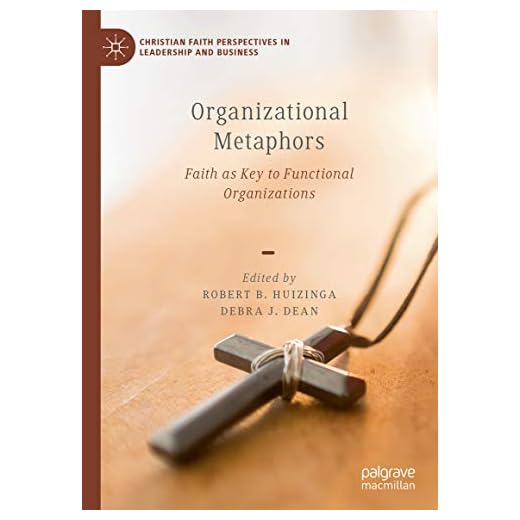




In the world of entrepreneurship and business, the saying “Don’t dig for gold, sell shovels” has become a popular mantra. This phrase encapsulates a powerful message about finding opportunities and success.
The meaning behind this saying is simple yet profound. Instead of tirelessly searching for a fortune or the next big thing, focus on providing the tools or services that people need to achieve their goals. In other words, rather than attempting to strike it rich directly, find a niche where you can supply the necessary resources for others to succeed.
By adopting this mindset, entrepreneurs and business owners can position themselves as problem-solvers and providers of value. They become the ones selling the shovels to the gold diggers. This approach allows individuals to capitalize on the needs and desires of others, creating a sustainable and profitable business model.
However, it’s important to note that this saying is not just about making money. It’s about developing a mindset of service and contribution. It encourages individuals to think creatively and find innovative ways to meet the needs of others. By focusing on providing value and solutions, entrepreneurs can build meaningful businesses that have a positive impact on society.
In conclusion, the “Don’t dig for gold, sell shovels” meaning emphasizes the importance of thinking outside the box, identifying opportunities, and providing valuable resources. It’s about finding a niche where you can excel and serve others while building a successful business. So, instead of digging for gold, be the one who sells the shovels.
Understanding the Meaning of “Don’t Dig for Gold, Sell Shovels”
“Don’t Dig for Gold, Sell Shovels” is a phrase that carries a powerful message in the world of entrepreneurship and business. It is a mantra that encourages individuals to focus on providing necessary tools and resources rather than chasing after the end goal or immediate riches.
This concept originates from the California Gold Rush era when thousands of people flocked to California in search of gold. However, only a handful of them became rich by finding gold directly. The real success stories came from those who recognized the demand for tools such as shovels, pans, and sieves needed for gold prospecting.
The meaning behind “Don’t Dig for Gold, Sell Shovels” is that instead of solely focusing on the end result or trying to strike it rich directly, individuals should focus on identifying needs within a market and providing the necessary tools or resources to fulfill those needs. By doing so, they can create a sustainable business that serves a valuable purpose.
The Importance of Providing Tools and Resources
One of the key insights behind the “Don’t Dig for Gold, Sell Shovels” mindset is the understanding that success often lies in providing the tools and resources that enable others to achieve their goals. By doing so, individuals can position themselves as problem solvers and make a meaningful impact within their target market.
In the context of entrepreneurship, this mindset directs individuals to focus on creating products or services that address specific pain points or challenges faced by their target audience. By offering the tools and resources needed to overcome these obstacles, entrepreneurs can build a loyal customer base and establish themselves as valuable contributors to the industry.
Shifting Perspectives and Embracing Opportunities
“Don’t Dig for Gold, Sell Shovels” encourages a shift in perspective from being solely outcome-focused to embracing opportunities that arise in providing solutions. Instead of being fixated on the end result, entrepreneurs are urged to explore and identify areas where their skills, knowledge, and resources can be best utilized.
By adopting this mindset, entrepreneurs can uncover new opportunities and create value by filling gaps in the market. They become more attuned to the needs of their target audience and are better equipped to develop innovative solutions that address those needs.
In conclusion, “Don’t Dig for Gold, Sell Shovels” serves as a powerful reminder to entrepreneurs and business owners to focus on providing valuable tools and resources rather than obsessing over immediate success. It encourages individuals to think outside the box, identify market needs, and create solutions that have long-term value.
The Golden Lesson of Entrepreneurship
This saying emphasizes the idea that instead of focusing on the end result or the goal itself, entrepreneurs should focus on providing the means to achieve that goal. Rather than trying to find the next big opportunity or strike it rich, successful entrepreneurs understand the value in providing the tools, services, or products that enable others to pursue their goals.
By selling shovels, entrepreneurs are able to tap into a wide range of opportunities and markets. They are not limited to a single industry or endeavor but instead have the flexibility to adapt and evolve alongside the needs of their customers. This approach also allows for multiple streams of income, as entrepreneurs can provide different tools and resources to different target markets.
| Benefits of Selling Shovels |
| 1. Stable income: By selling tools and resources, entrepreneurs can establish a steady stream of income, regardless of market fluctuations. |
| 2. Long-term opportunities: The demand for tools and resources will always exist as people continue to pursue their goals and seek ways to improve their lives. |
| 3. Scalability: Selling shovels allows entrepreneurs to scale their businesses by reaching a larger customer base and expanding their product offerings. |
| 4. Easier market entry: Instead of trying to compete in saturated or highly competitive markets, entrepreneurs can create their own niche by providing unique tools and resources. |
In conclusion, the lesson of “don’t dig for gold, sell shovels” is a valuable one for any aspiring entrepreneur. By focusing on providing the tools and resources that enable others to achieve their goals, entrepreneurs can build successful and sustainable businesses while tapping into a wide range of opportunities.
Uncovering the Wisdom Behind the Metaphor
The saying “Don’t dig for gold, sell shovels” has a deeper meaning that can be applied to various aspects of life. The metaphor suggests that instead of focusing on the end goal or the direct path to success, it is more profitable to provide the tools or services that enable others to reach their goals.
In the context of entrepreneurship, this metaphor advises against solely pursuing the latest trend or shiny idea. Instead, it encourages entrepreneurs to identify the needs and challenges of others and create solutions that can help them overcome those obstacles. By selling the “shovels,” entrepreneurs can position themselves as valuable resources in the market.
Furthermore, this metaphor extends beyond economic pursuits. It can be applied to personal growth and relationships as well. Instead of constantly seeking external validation or searching for quick fixes, individuals can focus on acquiring knowledge, skills, or tools that can benefit themselves and others in the long run.
By embodying the spirit of “selling shovels,” individuals can become more self-reliant, adaptable, and impactful contributors to their communities. Rather than relying on others to provide them with the solution or the “gold,” they take the initiative to empower themselves and contribute to the collective success.
Ultimately, the wisdom behind this metaphor reminds us to shift our perspective from a purely results-oriented mindset to one that prioritizes problem-solving, resourcefulness, and facilitating the success of others. By doing so, we can unlock new opportunities, forge meaningful connections, and create a more sustainable and fulfilling path towards our goals.
The Power of Shovels: Examining the Symbolism
When we hear the phrase “Don’t dig for gold, sell shovels,” we may initially think of it as a piece of business advice. However, the deeper meaning behind this phrase lies in the symbolism of shovels and their power to enable success.
Shovels are simple and practical tools, often associated with hard physical labour, excavation, and earth-moving. In the context of the quote, shovels represent the means or tools necessary to achieve a desired outcome, rather than focusing solely on the end goal itself. This means that instead of trying to directly pursue the highly coveted objective, it may be more productive to provide the tools or resources that facilitate its attainment.
Metaphorically, shovels represent the ability to provide solutions, support, or assistance to others. By selling shovels, one embraces their role as a problem solver or facilitator, rather than a competitor in the race for the ultimate prize. This mindset shift can be empowering, as it allows individuals to focus on their strengths and expertise, leveraging them to help others succeed.
| Benefits of the “sell shovels” approach: |
| 1. Diversification: Instead of relying solely on one avenue for success, selling shovels allows for multiple streams of income, increasing overall stability. |
| 2. Long-term value: Shovels are timeless tools, always in demand. By positioning oneself as a provider of essential tools, one can establish a long-lasting presence in the market. |
| 3. Building relationships: By offering assistance and support, individuals can build strong relationships with customers and clients, leading to a loyal customer base and potential future collaborations. |
| 4. Expert status: Selling shovels necessitates expertise in the specific field or industry, positioning oneself as an authority and trusted resource. |
The symbolism behind the phrase “Don’t dig for gold, sell shovels” encourages individuals to consider the power of providing solutions and support, rather than solely focusing on the end goal. Shovels represent not only a means to an end but also an opportunity to establish oneself as a valuable contributor and facilitator of success.
Applying the Lesson: Practical Strategies for Success
Now that we understand the meaning behind the phrase “Don’t dig for gold, sell shovels,” we can start thinking about how to apply this lesson in our own lives. Here are some practical strategies to help us find success:
1. Identify a Problem or Need
The first step is to identify a problem or need that people have. Look for areas where there is a demand for a solution but a lack of supply. This could be in any industry or field, from technology to healthcare to personal finance.
Example: Let’s say you notice that many small businesses struggle with managing their social media presence. They lack the time or expertise to create engaging content and reach their target audience effectively.
2. Develop a Solution
Once you have identified a problem or need, the next step is to develop a solution. Think about how you can provide value and help people overcome their challenges. This could involve creating a product, offering a service, or developing a platform.
Example: In the case of small businesses struggling with social media, you could develop a social media management service. You would offer to create and schedule engaging content, manage advertising campaigns, and analyze data to improve their social media presence.
3. Position Yourself as the Expert
To sell your solution effectively, you need to position yourself as an expert in your chosen field. Showcase your knowledge, skills, and experience through content creation, networking, and collaborations. Build a reputation as someone who can deliver results.
Example: Share valuable tips and insights on social media platforms, write blog articles, and participate in industry events. Connect with other professionals in your field and collaborate on projects that highlight your expertise.
4. Market Your Solution
Marketing is essential to attract potential customers and create awareness about your solution. Use a mix of online and offline marketing strategies to reach your target audience and build a strong brand presence. Focus on showcasing the benefits of your solution and how it can improve people’s lives.
Example: Create a website and social media profiles to promote your social media management service. Offer free resources like e-books or webinars to attract potential customers. Use targeted advertising and networking events to reach out to small businesses directly.
By following these practical strategies, you can apply the lesson of selling shovels instead of digging for gold. Remember, success comes to those who can identify a need and provide a valuable solution. So go out there and make a difference!









